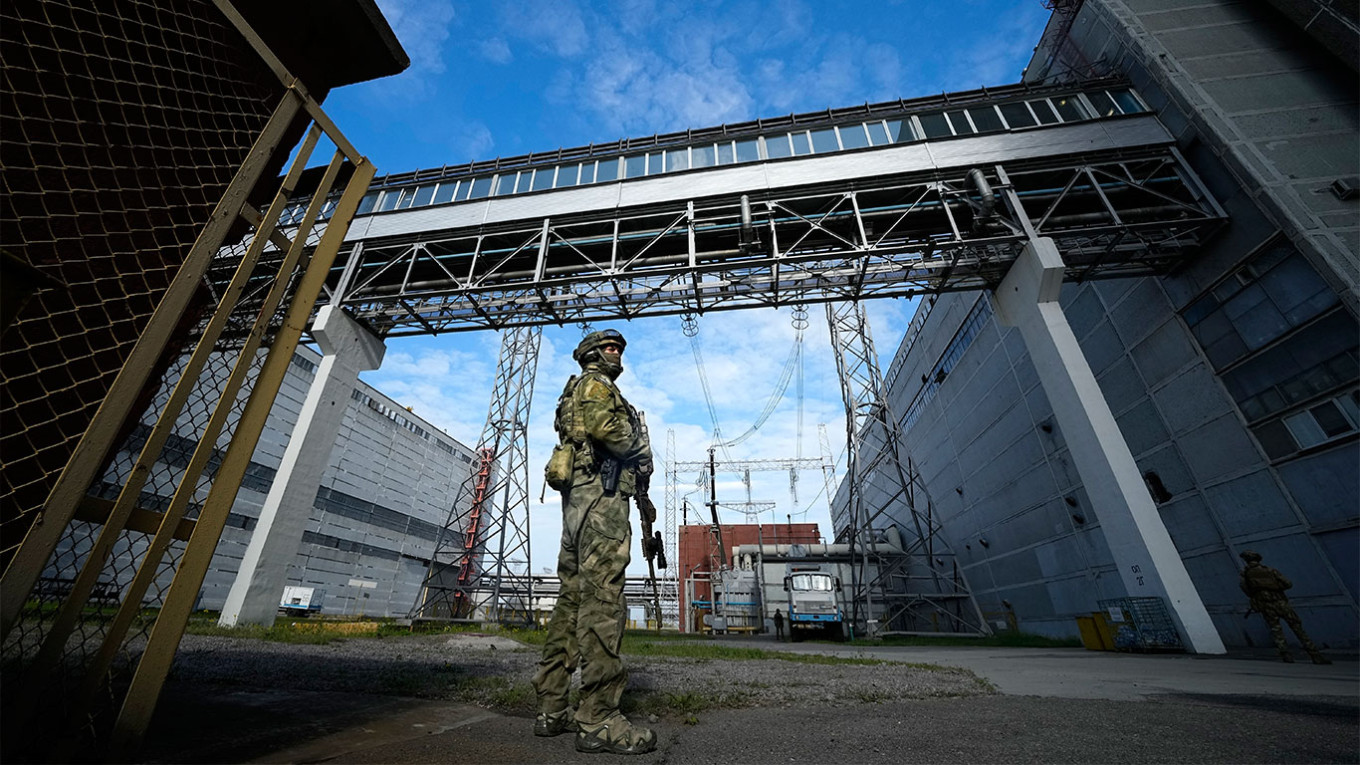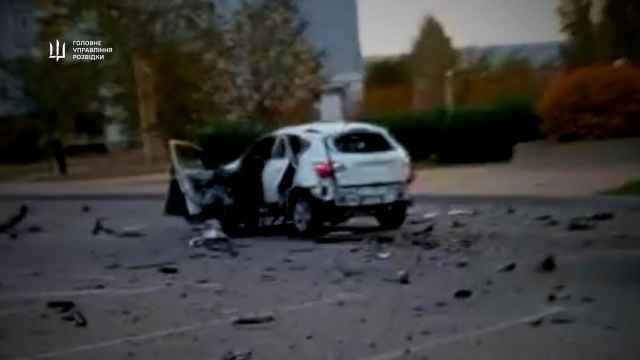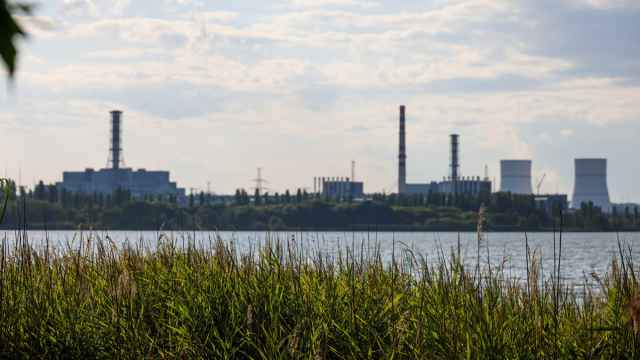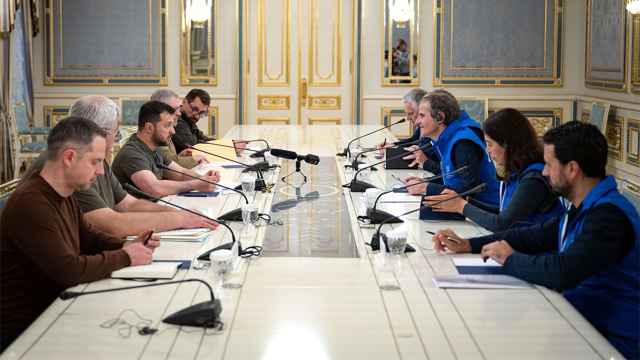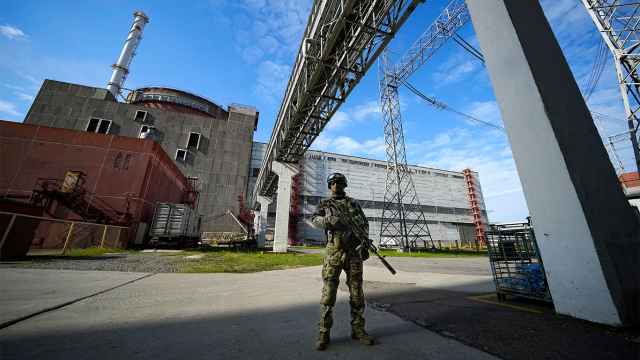Kyiv on Thursday accused Moscow of storing heavy weapons at Europe's largest nuclear power plant in occupied Ukrainian territory, after Russia said Ukraine's troops had fired on the facility.
Ukraine state energy company Energoatom said on social media that Russia had moved over two dozen pieces of military equipment and ammunition into the engine room of the first reactor.
"The occupiers continue to cynically violate all norms and requirements regarding fire, nuclear and radiation safety of the NPP operation, keeping heavy military equipment, ammunition, weapons and explosives just in the engine room of the power unit of the largest nuclear power plant in Europe," it said.
Russia earlier on Thursday accused Ukraine of firing this week on the Zaporizhzhia plant, claiming a "catastrophe" was narrowly avoided "by luck."
Foreign Ministry spokeswoman Maria Zakharova said Kyiv was seeking to create "conditions for a nuclear disaster, not only on its territory, but throughout Europe."
The Zaporizhzhia plant in southeast Ukraine is the largest in Europe. Russian troops took control of it in March, early in their invasion of Ukraine.
Zakharova said Ukrainian forces had fired on it twice this week — on July 18 and July 20 — from a drone.
She said the strike landed "just tens of meters" away from a reactor cooling tank.
"It was only by luck that this did not lead to damage to the equipment and to a manmade catastrophe," she added.
Ukraine however said Russia's alleged positioning of weaponry at the plant came at the expense of fire safety norms and that if Russian ammunition is accidentally ignited, the consequences would be disastrous.
"If a fire occurs, for example, due to the accidental detonation of ammunition, then its scale could be equal to the one that occurred during the accident at the Chernobyl nuclear power plant" in 1986, Energoatom said.
Moscow-installed authorities in the part of Zaporizhzhia region controlled by Russian troops accused Ukraine of "nuclear terrorism" and said they would appeal to the United Nations.
The UN's nuclear watchdog said last month it was planning to visit the Zaporizhzhia nuclear plant, despite protests from Kyiv.
A Message from The Moscow Times:
Dear readers,
We are facing unprecedented challenges. Russia's Prosecutor General's Office has designated The Moscow Times as an "undesirable" organization, criminalizing our work and putting our staff at risk of prosecution. This follows our earlier unjust labeling as a "foreign agent."
These actions are direct attempts to silence independent journalism in Russia. The authorities claim our work "discredits the decisions of the Russian leadership." We see things differently: we strive to provide accurate, unbiased reporting on Russia.
We, the journalists of The Moscow Times, refuse to be silenced. But to continue our work, we need your help.
Your support, no matter how small, makes a world of difference. If you can, please support us monthly starting from just $2. It's quick to set up, and every contribution makes a significant impact.
By supporting The Moscow Times, you're defending open, independent journalism in the face of repression. Thank you for standing with us.
Remind me later.


